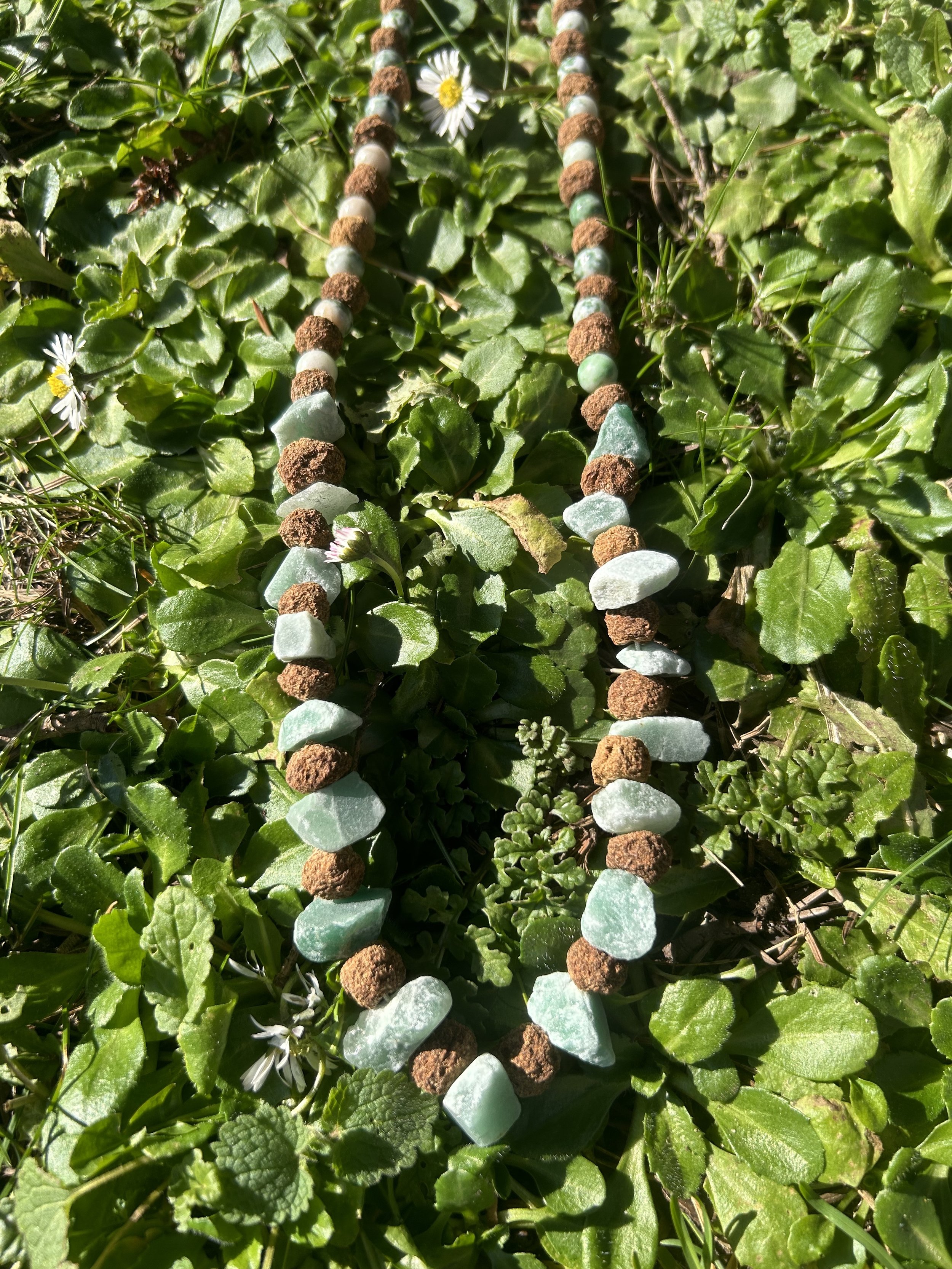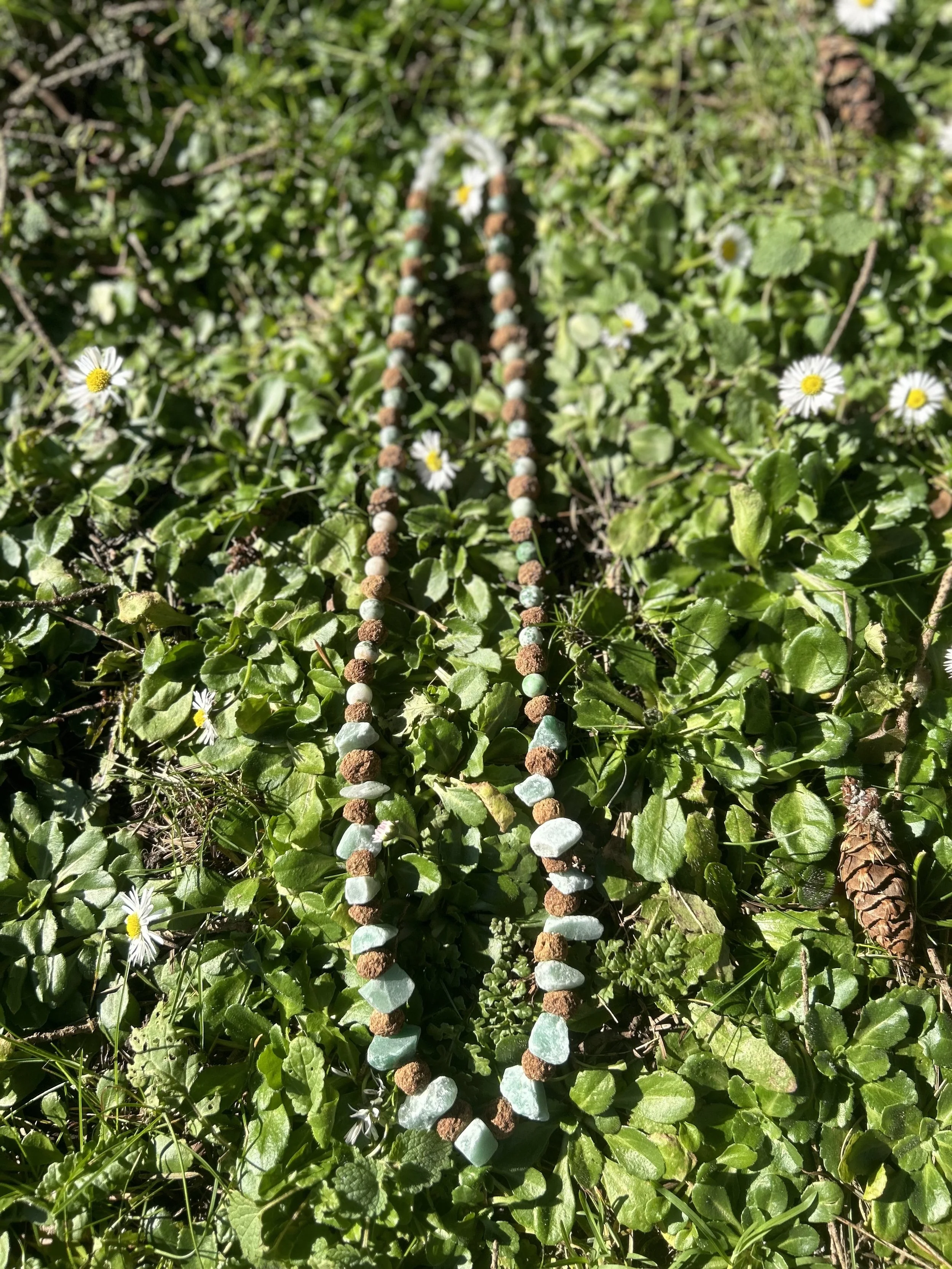Green Aventurine Goddesses of Abundance + Luck
Green Aventurine Goddesses of Abundance + Luck
This one-of-a-kind rosary embodies the energy of green aventurine, roses, moss agate and the many goddesses of abundance + good fortune across time and culture.
The necklace is made of 95 beads:
- 44 rose beads
- 17 large raw green aventurine crystals
- 28 moss agate crystals
- 6 quartz crystal beads
Green aventurine is a magic tool to attract prosperity, luck, confidence and abundance. It works with your heart chakra to support personal empowerment, optimism + happiness and encourages you to take action to achieve what your heart wants.
Moss agate supports you in embracing the new beginnings of springtime and the quartz is included to amplify the energy of the necklace.
There are Goddesses of abundance + good fortune across many cultures and spiritual traditions:
• Lakshmi (Hindu)
• Pomona (Roman)
• Áine/Rosmerta (Celtic)
• Hathor (Egyptian)
• Venus (Roman)
• Inanna (Sumarían)
• Oshun (Yoruba)
• Frigg (Swedish)
• Benten (Japanese)
• Ishtar (Mesopotamian)
• Freya (Norse)
• Anahita (Persian)
Process:
The rose beads are lovingly made using a slow, intentional process. The roses used in this necklace are a mix of yellow and white roses that were held in sacred space in my altars and women’s circles in January and February 2025.
The rose petals were blended with sacred water from St Nectan’s Glen Waterfall in Cornwall and the White Spring in Glastonbury, before cleansing the pulp using gentle heat.
Once cooled, I drained the clay of liquid and used this dye to colour altar cloths. I smoothed out the clay and allowed it to sit for a few days, before rolling it out into beads and then baking them.
This rosary is infused with love, ritual and ceremony - and the divine feminine spirit of the land in the UK.
The rosary can be worn, placed in an altar and/or used for prayer/intention setting.
Each rosary comes with a bonus small handmade altar cloth, goddess card and crystal.
**The word rosary refers to the garlands that were traditionally woven from roses and offered to the Virgin Mary in the springtime. But long before Mary, those same garlands were made as offerings to other goddesses by many other names. Roses were offered to Venus, the Roman goddess of love and fertility, whose emblem was also a circle with a cross pendant. Before that, they were offered to Isis, the Great Mother of the ancient Mediterranean world. The rosary is an enduring, multi-cultural symbol of the divine feminine and our own connection to the divinity within us.










